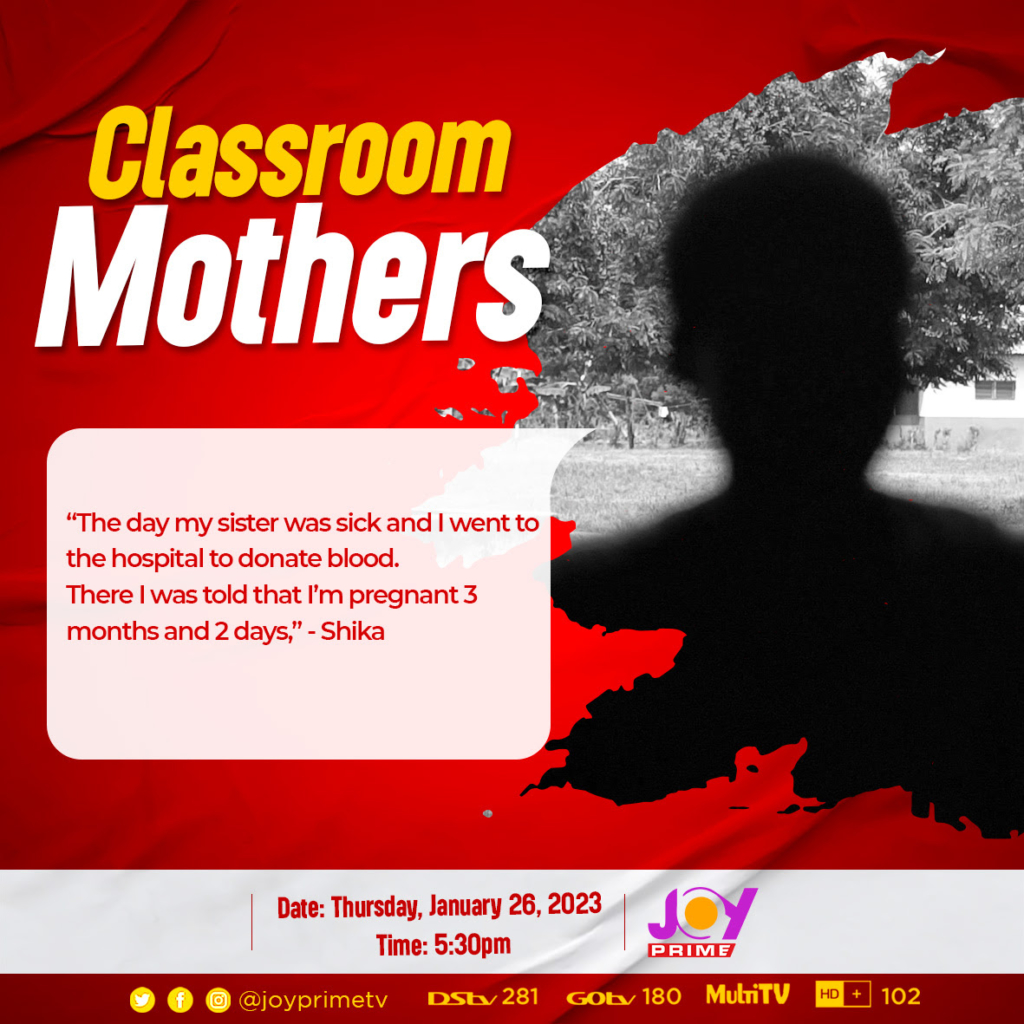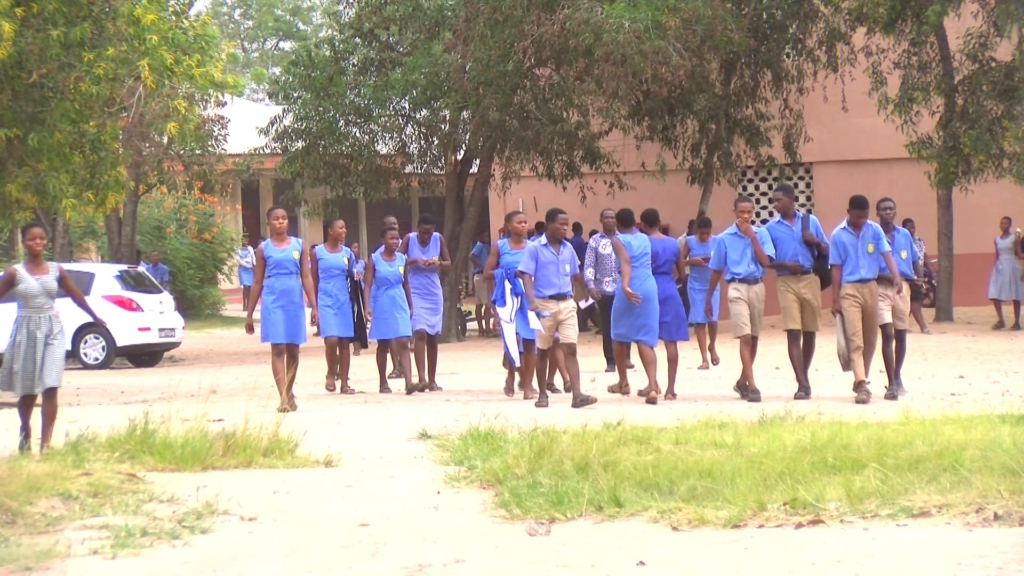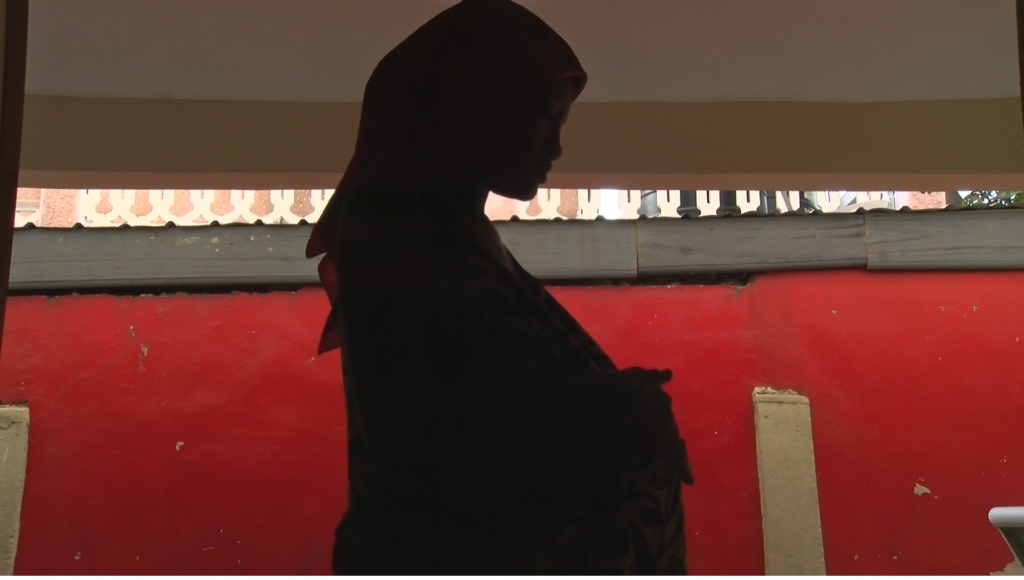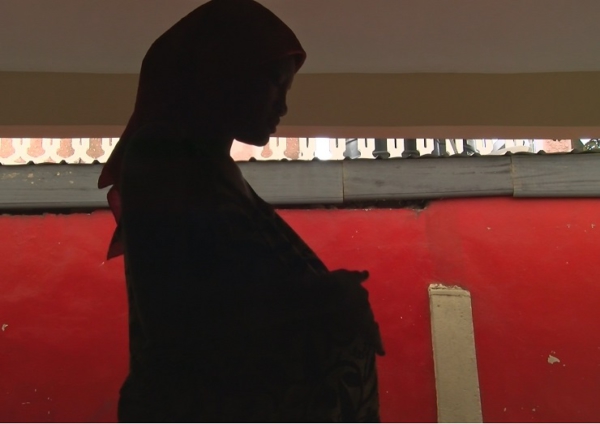Shika, (not her real name), is in senior high school.
She is currently in her first trimester of pregnancy.
Her pregnancy was not planned. It resulted from uncontrolled partying and drinking.
It all happened when Shika attended her boyfriend’s birthday party while school was on vacation.
According to her, she got drunk and had sex with her boyfriend.
"We were dancing and drinking when the whole thing happened. So I didn’t know anything until I came to school. We met in April, then we became friends, and we started dating. I’ve been visiting him sometimes until his birthday, then he invited me and I went," she said.
For months, Shika did not know she was pregnant.
She had gone to the hospital to donate blood for a sick relative, only to be hit with the news that she was pregnant.
"The day my sister was sick and I went to the hospital to donate blood. There I was told that I’m pregnant; 3 months and 2 days. From there, I called my grandpa and told him. Then he said that, I should come home. When I get home, we’ll talk about it," she told Joy Prime.

The 18-year-old is disappointed in herself and fears her action may jeopardise her education.
She is one of three schoolgirls featured in Joy Prime's documentary, Classroom Mothers, produced by Emmanuel Dzivenu.
The senior housemistress at Adidome SHS, Mercy Dzifa Afi Akwada, revealed that an average of 10 schoolgirls get pregnant at Adidome SHS each academic term.
She believes low sex education partly results in misconceptions about sexuality among schoolchildren.
"Like any other school, it is still the same. Averagely, a semester, about 10 girls get pregnant. Even in these first years, as they came to school, two of them were pregnant. We were able to handle it. They have given birth, and they are back to school."
"We do ask them, and, you know, maybe after vacation or after school, they decide to go and mingle, and then they get pregnant. Some too birthday parties, some too maybe their parents are not around…a whole lot. You know adolescents. They like to associate with the opposite sex and since a lot of education is not going on, they are not able to control their passion well. They end up becoming pregnant," the senior mistress indicated.
According to the Senior Housemistress, her primary campaign was to encourage students to abstain from sex, but in recent times, she has added protected sex to her education.
However, some students still engage in unprotected sex, and the girls become pregnant. Apart from the possibility of contracting sexually transmitted diseases, the senior housemistress suggested some plans for pregnant girls to prevent them from dropping out of school.
She said that, "When we realise you’re pregnant, we normally monitor you. What I also do is call the house prefects. I talk to them, and I tell them they should monitor them. And the moment they come to tell me that they’re suspecting this person, I monitor and call the person, and we talk. We go to the clinic and test, and if it is true, we call the parents in, relax them, and inform them that something has happened."
Shika was raised by her grandfather. She does not know her mother or father.
Breaking the news to her grandfather was difficult, but when she eventually did, her grandpa insisted she return to school.

"I called my grandpa and told him. Then he said that I should come home. When I get home, we’ll talk about it. He was like, I should not give up. I should come back to school, so when it is time to deliver, I will deliver, and then I come and continue my education. I was disappointed, but he said I would make it, so I know I will make it."
Pregnancy among schoolgirls is a global concern, and it is one of the gender-related barriers that prevents girls from completing their education.

While pregnancy affects schoolgirls in different ways, the main difficulty is their inability to continue schooling during pregnancy and after childbirth.
The senior housemistress indicated that, "The government has made it a policy that since they have become pregnant, they need to come back. They go and give birth, then come back. So we calm them down, and we monitor them. I monitor their antenatal care and their food. Sometimes, I do give them food if the need be, we give them money if the need be; and then the parents also come in, and when it is almost time for the child or the girl to give birth, we allow the girl to go home, give birth, and, in 3 months’ time, the girl comes back to school. So we have a lot of them that do come back. Just a few decide not to come, but a lot do come back and write their papers or continue with their schooling and then go."
Despite Shika’s current circumstances, she is determined to complete her secondary education.
Latest Stories
-
George Twum-Barimah-Adu pledges inclusive cabinet with Minority and Majority leaders
14 mins -
Labourer jailed 5 years for inflicting cutlass wounds on businessman
15 mins -
Parliament urged to fast-track passage of Road Traffic Amendment Bill
16 mins -
Mr Daniel Kofi Asante aka Electrician
16 mins -
Minerals Commission, Solidaridad unveils forum to tackle child labour in mining sector
21 mins -
Election 2024: Engagement with security services productive – NDC
23 mins -
‘Let’s work together to improve sanitation, promote health outcome’ – Sector Minister urges
24 mins -
Ellembelle MP cuts sod for six-unit classroom block at Nkroful Agric SHS
27 mins -
‘I’ll beat the hell out of you if you misbehave on December 7’ – Achiase Commanding Officer
30 mins -
AFPNC leads the charge on World Prematurity Day 2024
35 mins -
Court remands unemployed man over theft of ECG property
42 mins -
Election security rests solely with the police – Central Regional Police Command
44 mins -
NCCE engages political youth activists at Kumbungu on tolerance
44 mins -
‘In Mahama’s era students lacked chalk, but are now receiving tablets’ – Bawumia
54 mins -
Project commissioning not a ploy to attract votes – Oppong Nkrumah
55 mins

